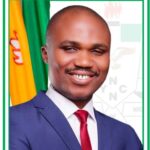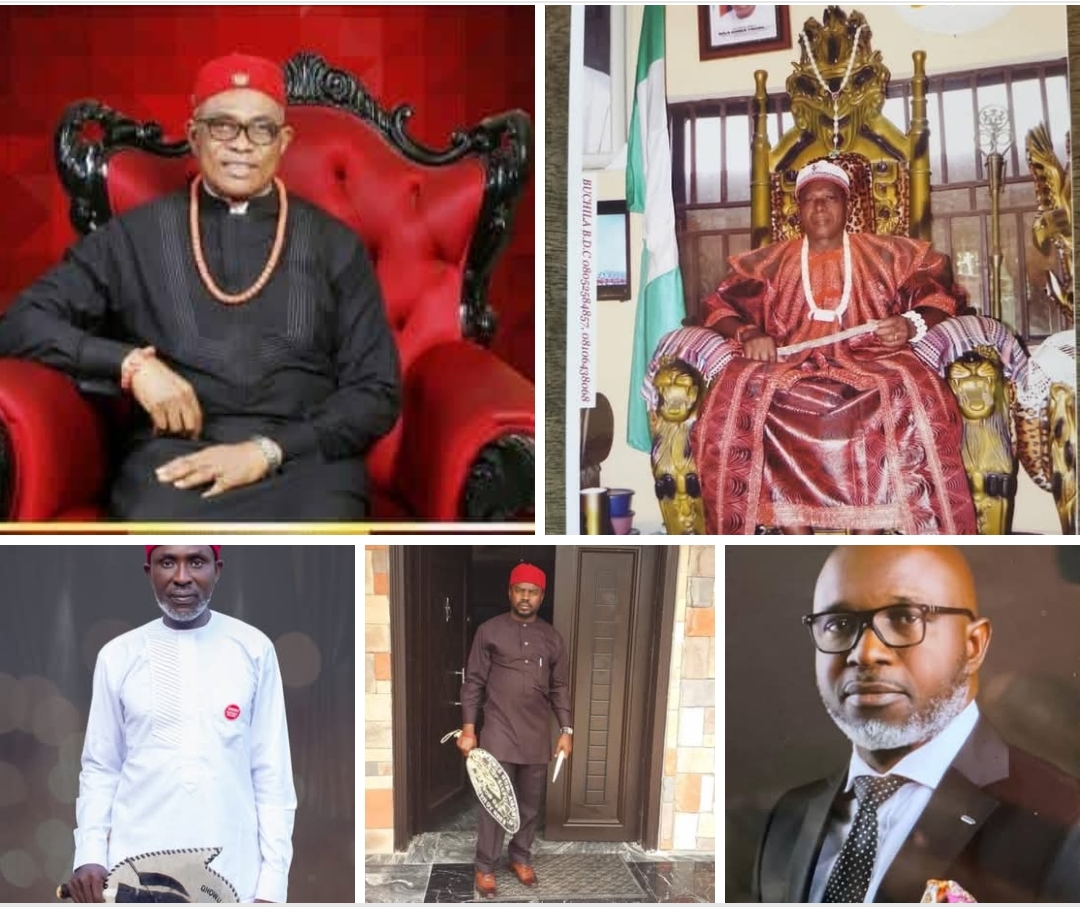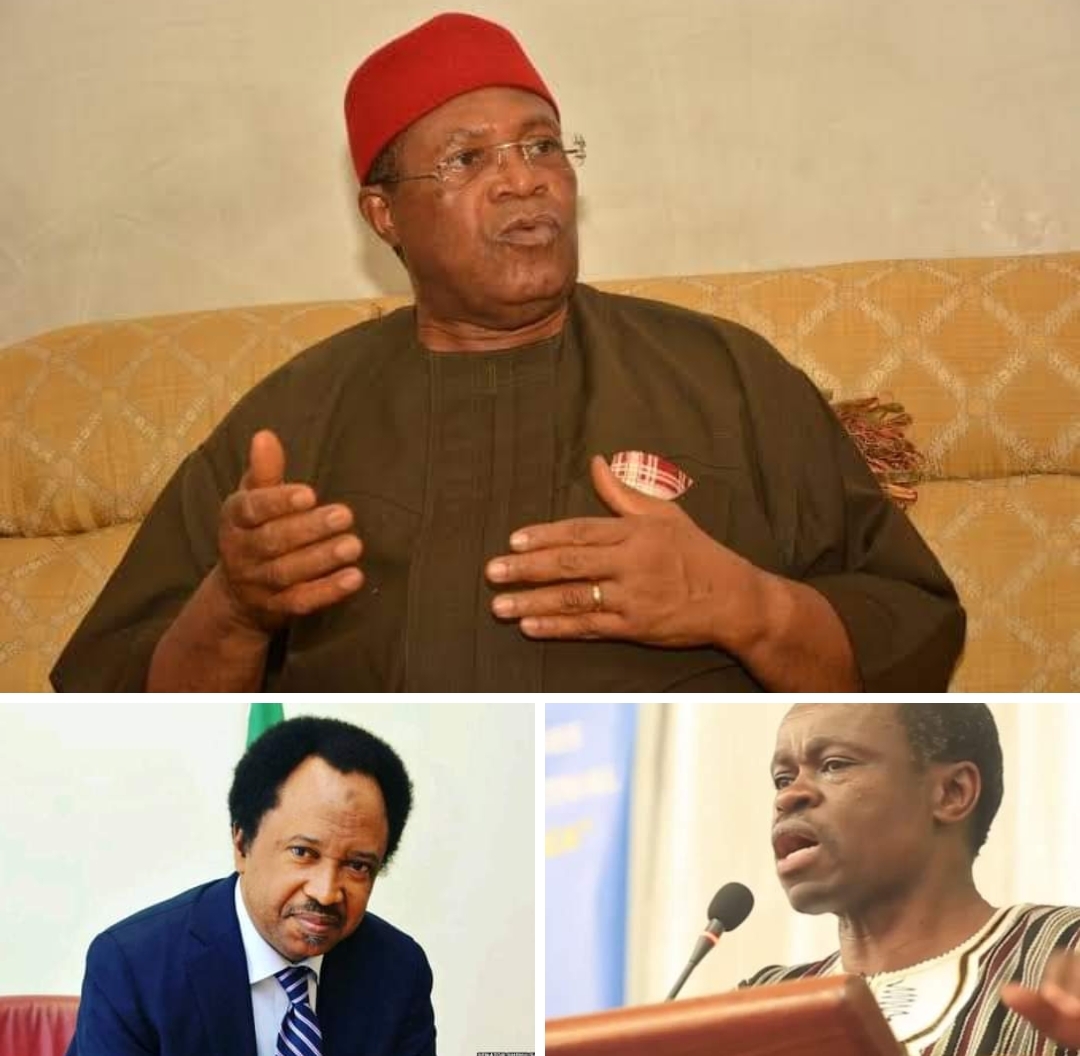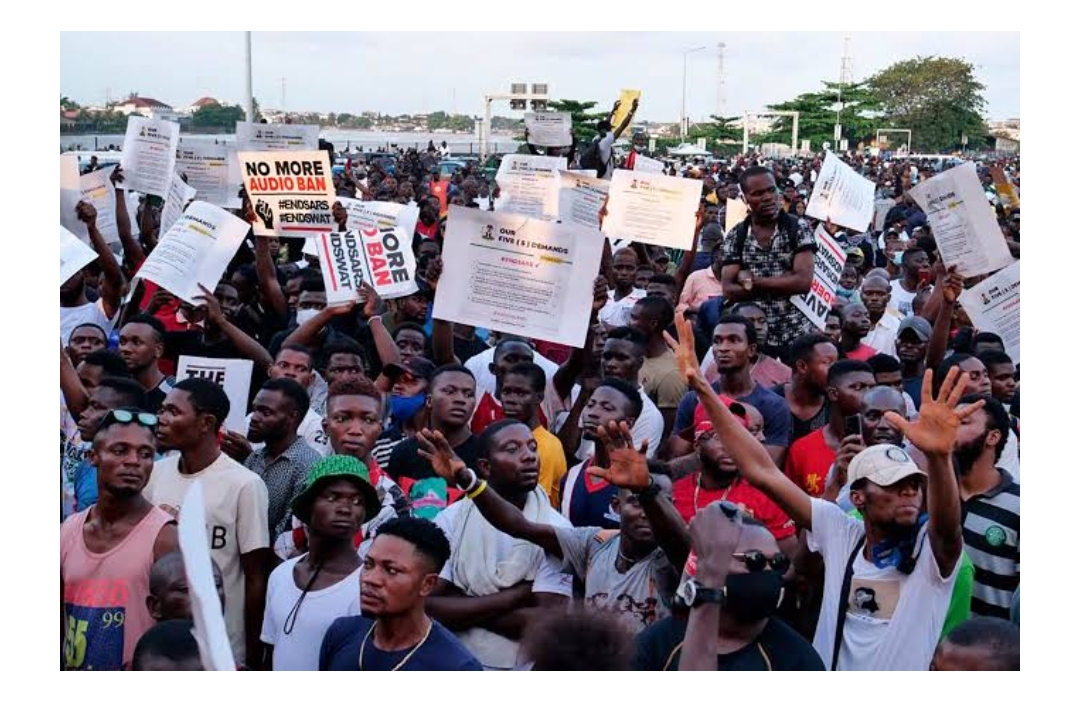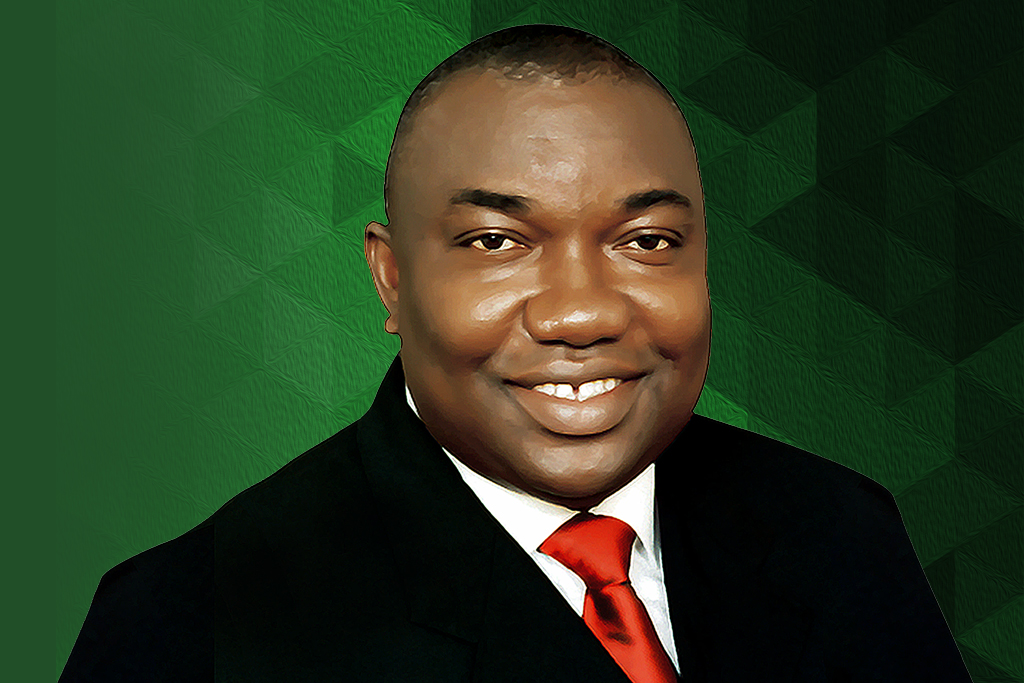
Until June 6, 2018 when the President Buhari-led administration declared June 12 as the new Democracy Day, Nigeria commemorated the restoration of Democracy on the 29th of May, every year. That day celebrates the solemn and remarkable rebirth of our participatory leadership, to honour the courageous heroes who altruistically championed and chaperoned the noble course of our cherished freedom, with famed fiestas, and critical discourses on statehood. The declaration of June 12 as the new Democracy Day in honour and memory of Chief Moshood Kashimawo Olawale Abiola GCFR, notwithstanding, May 29 is still special, not only for nostalgic sentimentalities or because it is sometimes a date with effluxion of term, tenure, or both, but also because it remains the day for unavoidable introspection, unforced accountability, inward regeneration, inquests on performance, probity in governance, rectitude and finally, a testament on the real patrimony and mood of the citizenry.
The only thing that is worse than being blind is having sight without vision”*— *These evocative words of HELLEN KELLER, an American scholar and philosopher could not have been more revealing of the country’s inexplicable profligacy despite the enormity of her human and natural resources; culminating in the frittering of golden and yawning opportunities to internalize and accentuate the solid foundations that had been institutionalized by our heroes past. Unfortunately, Nigeria still exudes the unmistakable trappings of a failing Nation, sandwiched by ethnic chauvinism and religious bigotry on one side, and of course engraved corruption, inherited mistrust and sweeping insecurity on the other. In all, the people like the proverbial grass, suffer under the lumbering, slumbering elephants.
Driven by the enduring impact of an elongated struggle, Pro-democracy elements in the country have commemorated the date May 29, as if it were a vent for the yearnings for democratic rebirth.
Paradoxically, majority of those in power today, are either those who backed and profited from military authoritarian rule or those who were hiding in the comfort of their homes when Pro-Democrats ruled the streets and the media space in peaceful and sustained protest against widespread violations of the rights of Nigerians by the military. Their action and inaction have curiously devalued and violated this democratic essence, thereby emasculating the public space and engendering widespread poverty and underdevelopment in the midst of plenty.
So, today provides us an ex-cathedra opportunity to review the state of our democracy under the incumbent state actors.Under these intense circumstances and the rising crescendo of disapproval by the masses, emerges the courage to dignify some Leaders who are defiantly ignoring sacrifices for self, in search of sacrifices of self, for the good of the rest of us.
It was on this 29th day of May, in 2015 that Governor Ifeanyichukwu Lawrence Ugwuanyi for the first time, willfully and conscientiously entered into a social contract with Ndi Enugu, swearing to preserve our cherished socio-cultural heritage, sustain our sense of pride, and steer Enugu towards the vista of a new epoch. It marked the beginning of an epic chapter in the history journals of the state.
At that time, Enugu was deeply mired in dire financial straits, pummeled by dwindling federal allocations, poor internally generated revenue (IGR) and caught in the whirlwind of a national economic recession exacerbated by drastic decline in crude oil price. Governor Ugwuanyi boldly embraced the challenges head-on. Instead of cowering or resigning to fate, he set out to reinvent and re-strategize. He found uncommon inspiration and energy in his sworn commitment to enduring peace and sustained development, employment generation for the teeming youths, aggressive rural development, security, and all-round good governance. Four years later in 2019, Ndi Enugu defied all the encumbrances and the political tensions to vehemently pass a concordant, resounding vote of confidence on Governor Ugwuanyi, by delivering a historic victory to him at the gubernatorial polls.
Governor Ugwuanyi’s impact was first felt in the political climate, system, and institutions when he began to synergize priorities and interest, reconcile foes, forge new bonds, cultivate a sustainable culture of peace and trigger a new wave of youth inclusiveness in the political leadership trajectory. He successfully sold the vision of a united Enugu to the political elites, engendering conciliation and fostering goodwill. He demystified politics of dynasties; throwing the doors open for the privileged and ordinary men alike who had the motivation and content to deliver, regardless of socio-cultural background, religion, orientation, and inclinations. This has perhaps set up a seeming parity in competitive survival; a clear departure from the routine elitist deceit and intellectual dishonesty that had previously massaged the whims of political correctness. Governor Ugwuanyi set off a chain of initiatives and strategies to cut the cost of governance, plug loopholes of misappropriation, and systematically grow Enugu’s IGR profile.
The outcomes of Governor Ugwuanyi’s creative strategies, shrewdness, prudence, and painstaking efforts are unambiguously manifest even to the unrepentant brotherhood of naysayers. In 2019, Enugu was ranked 9th out of 36 states and the FCT, in terms of IGR performance. In Enugu state, politics is no longer the exclusive prerogative and cash cow of the Lords of the Manor. Diversification has been given an unconventionally practical interpretation, with massive investments yielding tremendous returns in sectors such as tourism, and commerce and industry. The successful organization of the globally acclaimed first Enugu Investment Summit in concert with several other initiatives put Enugu on the global business map.
Consequently, Enugu State leapfrogged from its 2014 World Bank Ease of Doing Business ranking as 27th out of 36 states, including FCT Abuja, to 2nd in Ease of Starting Business and 3rd in Ease of Doing Business in the 2018 World Bank Ease of Doing Business sub-national ranking. Also, the Lion Business park, an integrated industrial/commercial hub driven by public-private partnership initiative, was just recently unveiled, to further promote businesses in the state.
Rural renaissance was central to Governor Ugwuanyi’s robust development agenda from the get-go, alongside urban renewal. He has consciously discountenanced with the naive and parochial misconception that development can only be viewed to have been firmly accomplished only if assessed via the tainted prism and warped precincts of a recycled metropolitan redevelopment.
Unrelenting in his quest to rebalance the skewed scale of the urban/rural contrast, the Ugwuanyi phenomenon has charted new territories, connected communities, established economic-oriented rural/urban linkages, and lifted the typical rural personnel from the shadows of the traumatic and inglorious abandonment of the past to the springs of Olympian heights.
From the first state government asphalted road with solar-powered street lights in Ohodo to the 12km Ugwuomu Nike-Go Uni Road; from the valleys of the Milliken Hill to Opi Nsukka dual carrieageway; from Ebonyi River bridge Ikem to the bridges in Udenu ring roads; from Iva Valley road in Enugu North LGA to Nkalagu-Eha Amufu road neglected for over 35 years; from Ukpabi-Nimbo-Ugbene Ajima-Eziani road to Neke-Mbu-Ogbodu Aba-Obollo Etiti inter-community road linking Isiuzo and Udenu LGAs; from Inyi-Akpugoeze road in Oji River LGA to Ituku road in Awgu LGA and down to Amurri road in Nkanu West LGA to mention but a few, Governor Ugwuanyi has reintegrated the hinterlands into the affairs and benefits of governance through infrastructural rebirth and multispectral socioeconomic easements. The ultramodern Nsukka Township Stadium project currently under construction is expected to be completed before the end of the year. In his urban/rural dual-frontier approach, construction of the first flyover bridge project is currently ongoing at Nike Lake/T Junction in Enugu East Local Government Area, to provide reprieve from long-standing traffic congestion.
The now abating COVID-19 pandemic which ravaged the world and made a mockery of global superpowers met a resilient health sector in Enugu State, the fallout of a series of sound strategic decisions and rigorous investments by the Ugwuanyi administration. The ultra-modern Diagnostic Centre inherited from the previous administration was completed and equipped in time to function as a COVID-19 Isolation and Treatment centre, complementing two other centres in ESUT Teaching Hospital and Nsukka. In addition to massive reconstruction, new structures were erected at the acquired Colliery Hospital, Enugu, which operates as the biggest Infectious Disease Isolation and Treatment Centre east of the Niger. The construction of 7 units of Type 3 Primary Health Care Centre in 7 LGAs nears completion, true to Governor Ugwuanyi’s unalloyed commitment to total recovery. Enugu was among the first states to roll out the COVID-19 vaccine in the country, typical of the governor’s rapid and strategic response to the pandemic.
Governor Ugwuanyi has not only invested in Enugu’s future through employment generation, but he has also revamped the education sector. These days when the glitz and alluring glamour of politics appear to have eclipsed intellect, it is so refreshing to see an emerging generation from this side of the geopolitical divide, with a profound penchant and flair not only for esotericism but also for science and technology.
Scholarships have been offered to 680 indigent Engineering students of Enugu State Polytechnic, Iwollo and the Institute of Management Technology, Enugu. Only 3 days ago, about 7 Enugu youths were selected to go to US sequel to the mentorship programme unveiled by Governor Ugwuanyi through the State Scholarship and Education Loan Board (ESSELB) anchored by the young and dynamic Executive Secretary of Scholarship Board Barr. Levi Eboyi and his colleague Dr Kelechi Ugwuanyi of the mentors council. The State has secured both the admissions and scholarships of the aforesaid persons with full funding. As it currently
stands, more that 1,400 verifiable projects have been executed in various primary and secondary schools across the 17 Local Government Areas of the State under ENSUBEB and PPSMB. Over 7000 primary and secondary school teachers have been recruited with an additional 1000 existing volunteers converted. Also, several classroom blocks, offices, laboratories, and hostels have been constructed, renovated, and equipped.
At the tertiary level, through consistent infrastructural and human resource development, the Institute of Management and Technology (IMT) under the watchful but dexterous chairmanship of Deaconess Mrs Ifeoma Nwobodo, transitioned into a degree-awarding institution and recovered hitherto-lost accreditation for several courses. Other state-owned institutions including the Enugu State University of Science and Technology (ESUT), Enugu State College of Education Technical (ESCET) and Enugu State Polytechnic, Iwollo, have also seen their pedigrees elevated through uncommon transformations.
*Being a government of many historic firsts, the Ugwuanyi administration is constructing the first degree-awarding institution in Education in the South East zone, the Enugu State University of Education in Ihe, Awgu LGA, with supersonic speed. A new campus of the recently decentralized Enugu State University of Science and Technology is under construction in Enugu North Senatorial Zone, with the speedy erection of a world-class ESUT Teaching Hospital and College of Medicine in Igbo-Eno. Through Governor Ugwuanyi’s influence and relentless advocacy, a Federal Polytechnic has just been established and sited in Ohodo, Igbo-etiti Local Government Area.
The Ugwuanyi administration has jealously guarded Enugu’s historic reputation as one of the most secure states in the Federation and stayed ahead of emerging dynamics, through intentional and strategic re-jigging of the security architecture. The government procured and donated 100 units of Innoson Vehicle Manufacturing (IVM) patrol van with communication gadgets to security agencies in the state. Enugu was the first to implement the Forest Guards initiative in the South East geo-political zone with Governor Ugwuanyi empowering the 1,700-personnel brigade with 260 motorcycles, 300 bicycles and other appurtenances.
Cautiously aware that social justice flows from the estuary of Judicial activities than from the firth of religious crusades, Governor Ugwuanyi has uninhibitedly accentuated a Judicial system in Enugu state trademarked with inalienable independence, robust infrastructure, unquestionable competencies, untainted probity, unscathed transparency, glaring incorruptibility and unflagging commitment to rule of law, due process, rectitude, enduring peace, and sustainable orderliness. This comes on the heels of several interventions such as the construction of the first Enugu State Customary Court of Appeal Headquarters complex, establishment of Multi-Door Court House in Enugu, renovation of the State Judiciary Headquarters complex and construction of several other court buildings across the rural, suburban, and urban landscapes in the state.
Governor Ugwanyi has remained an advocate of agriculture, not only to guarantee food sufficiency but also to boost the agrarian economy. Enugu has witnessed in the Ugwuanyi era the greatest agricultural reform since its creation nearly three decades ago. The administration has provided low-interest loans and grants to agripreneurs, approved the establishment of two World Bank projects, namely IFAD and APPEALS programmes for which it regularly pays counterpart funds, and launched the Coal City Rice, a commodity which remains in high demand in the entire South East and beyond. Thousands of women and youths have been empowered through various initiatives such as the Enugu State Traders Empowerment Scheme and the United Nations’ Sustainable Development Goals (SDGs). Just recently, Tech Hubs and Youth Innovation Centers were inaugurated by the governor at Independence Layout, Enugu North LGA and Obollo Afor, Udenu LGA, to empower the youths with in-demand skills of the 21st century digital economy.
On the housing and water supply frontiers, Governor Ugwuanyi has left structural legacies such as the rehabilitated facilities at Ajali and Oji River Water treatment schemes, ongoing rehabilitation of the 9th Mile Crash Programme Water Supply Scheme, and the numerous housing projects initiated and completed in response to deficits arising from the steady influx of people into the state.
Under the governor’s watch, Enugu regained its pride of place in national and global sports, with Rangers International, the flagship sigil or terra-sigillata of our post-war resilience, the symbol of our collective bravery and a movement of our fraternity, winning the Nigeria Professional Football League (NPFL) and the Unity League Federation Cup (Challenge Cup ) titles in the 2015/2016 and 2017/ 2018 seasons, after 32 and 35 years of inglorious wait, respectively.
The past six years of Governor Ugwuanyi’s leadership has been the cynosure of the Wawa narrative in its nearly 30-year history as a template for prodigies worthy of replication. The impact of governance has been felt from the highbrow metropolis to the rural fringes, manifest in a complete revamp of critical sectors and infrastructural rebirth across the rural and urban terrains. Governor Ugwuanyi has also reprogrammed Enugu’s political landscape, using his leadership acumen, sagacity, and divine gift of diplomacy to close the chapter on political elitism, electoral violence, unnecessary schism and mindless killings. The Ugwuanyi regime will forever be remembered for its pro-people priorities and policy thrusts, which have restored hope and put the state on the path to irreversible prosperity; thus deepening ENUGU IN THE HANDS OF GOD!
STEVE ORURUO is the Special Adviser to the Governor of Enugu State on Information*



